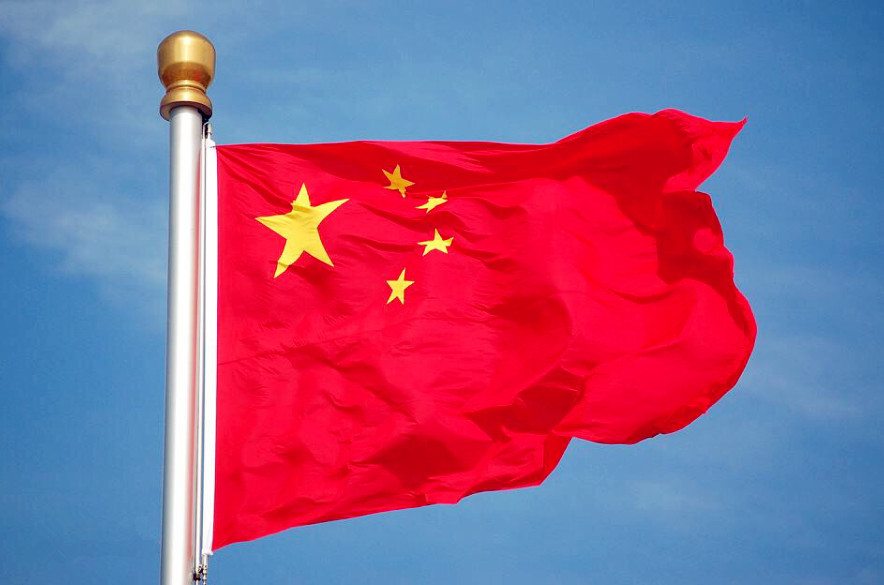


Starbucks Coffee, the global leader in coffee chain stores, signed an agreement with China’s e-commerce giant Alibaba to develop takeaway services just two months before the US Vice-President Mike Pence spoke on America's China policy on Oct. 4.
Some US media commented that the trade war hasn't stopped the development of American enterprises in China, saying that the cooperation between Starbucks and Alibaba proves the power of the Chinese market.
Starbucks first entered the Chinese market almost 20 years ago. According to its five-year plan for strong global growth, the company's total revenue in the Chinese mainland during the financial year of 2022 is projected to triple that of 2017.
However, US politicians turn a blind eye to such bilateral win-win cooperation and instead complain, mistaking China’s success as a result of influencing US interests, boasting that “the US rebuilt China.”
Such voices echo the Washington administration’s “America First” policy frequently mentioned in the top leader’s speeches, thus easily leading the country into a self-centered mindset.
For example, the US only talks about its efforts in assisting China in its accession to the WTO and opening the market to China, but seems reluctant to mention the fact that China has been opening its market wider to the US since its accession to the WTO.
According to UN data, exports of US goods to China increased by 577 percent between 2001 and 2017, a far more substantial growth than the increase of US goods exported globally over the same period, which stands at 112 percent.
Moreover, the president of the US asserted that “much of China’s success was driven by American investment in China,” but didn’t mentioned that US enterprises also gain huge profits from the Chinese market.
Taking General Motors as an example, its production in China accounts for 40 percent of its total global output. Certain American financial institutions, such as Goldman Sachs and Bank of America, have also benefited from investment in their Chinese counterparts.
Over the past four decades of reform and opening up, China has created miracles, such as an average annual GDP growth of 9 percent, lifting more than 700 million people out of poverty, ranking as the world’s second largest economy and the most significant trading country with the most substantial foreign currency reserves.
Steven Rattner from Wall Street has been paying attention to China’s “mixed system”, which provides a guarantee for China’s robust economic development. Lianhe Zaobao, the Singapore-based Chinese-language newspaper, recognized the crucial role of the political system in China’s success. Moreover, some media outlets have reported the hardship of Chinese researchers under unfavorable conditions. US leaders have been asked to open their ears to such fair comments from the international community.
A country’s development primarily relies on itself. China has not won its success from others, nor has it come from the “free China” pursued by certain US leaders and political elites. Instead, it is a result of Chinese people’s hard work and the path with Chinese characteristics chosen by Chinese citizens.
Indeed, China’s development cannot separate from its win-win cooperation with other countries around the world, while the US is a significant partner of China. However, this does not mean that China’s economic growth relies solely on US investment.
China’s opening up is worldwide and aims to learn from the development opportunities in all countries. Now, China has established a trading partnership with more than 230 countries and regions and become the largest trading partner to over 120 countries and territories. Trade between China and countries outside of the US account for 85 percent of China’s foreign trade volume, and has broad prospects.
Chinese people, who are the creators of China’s achievements in development, ultimately have the biggest say in China’s development path.
 Fire brigade in Shanghai holds group wedding
Fire brigade in Shanghai holds group wedding Tourists enjoy ice sculptures in Datan Town, north China
Tourists enjoy ice sculptures in Datan Town, north China Sunset scenery of Dayan Pagoda in Xi'an
Sunset scenery of Dayan Pagoda in Xi'an Tourists have fun at scenic spot in Nanlong Town, NW China
Tourists have fun at scenic spot in Nanlong Town, NW China Harbin attracts tourists by making best use of ice in winter
Harbin attracts tourists by making best use of ice in winter In pics: FIS Alpine Ski Women's World Cup Slalom
In pics: FIS Alpine Ski Women's World Cup Slalom Black-necked cranes rest at reservoir in Lhunzhub County, Lhasa
Black-necked cranes rest at reservoir in Lhunzhub County, Lhasa China's FAST telescope will be available to foreign scientists in April
China's FAST telescope will be available to foreign scientists in April "She power" plays indispensable role in poverty alleviation
"She power" plays indispensable role in poverty alleviation Top 10 world news events of People's Daily in 2020
Top 10 world news events of People's Daily in 2020 Top 10 China news events of People's Daily in 2020
Top 10 China news events of People's Daily in 2020 Top 10 media buzzwords of 2020
Top 10 media buzzwords of 2020 Year-ender:10 major tourism stories of 2020
Year-ender:10 major tourism stories of 2020 No interference in Venezuelan issues
No interference in Venezuelan issues
 Biz prepares for trade spat
Biz prepares for trade spat
 Broadcasting Continent
Broadcasting Continent Australia wins Chinese CEOs as US loses
Australia wins Chinese CEOs as US loses